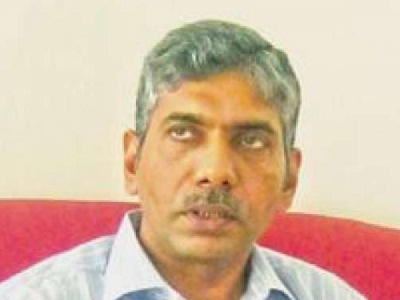
Posted on April 4, 2017
DGP Jacob Thomas committed grave irregularities in acquiring 50 acres of agriculture land in Tamil Nadu and while purchasing cutter suction dredger when he was heading the department of ports.
This was revealed in two statements of facts former chief secretary SM Vijayanand had submitted a week before his retirement to the advocate-general. The statements, prepared based on an instruction by the high court, would be submitted to the court.
Vijayanand retired from service on Friday, the same day vigilance director Thomas was asked to go on leave.
The statement, based on records available with government, said, Thomas had declared in the property statements filed in 2002 and 2003 that the property in Sethur village in Tamil Nadu’s Virudhunagar district belonged to his wife Daisy Jacob.
The statements filed in the subsequently years did not mention the property.
TOI had exposed on how Thomas used the name of a private firm in Kochi, posing as its director, to acquire the land. He has been holding it in his name without declaring it in the mandatory annual property statements submitted to the government.
It was also revealed that the property was acquired illegally, and the company had violated rules, including the Foreign Exchange Management Act (FEMA). Regarding the purchase of cutter suction dredger while Thomas was the director of ports, he aided a private firm, IHC Beaver to pip Bharat Earth Movers’ Limited (BEML), a public sector undertaking, according to a report by additional chief secretary (finance) K M Abraham.
The report said the purchase resulted in a financial loss of Rs 14.96 crores of public money. It also accused Thomas of conspiring to confer an illegal pecuniary advantage to a foreign company, not purchasing a dredge-line pipe along with dredger and deliberately overlooking annual maintenance contract.
The 239-page report had raised 28 accusations against Thomas, beginning from an attempt to modify the specifications of the dredger to suit the specifications of IHC Beaver despite knowing that the specifications for which administrative sanction given was adequate to meet the requirements.
Source: The Times Of India





